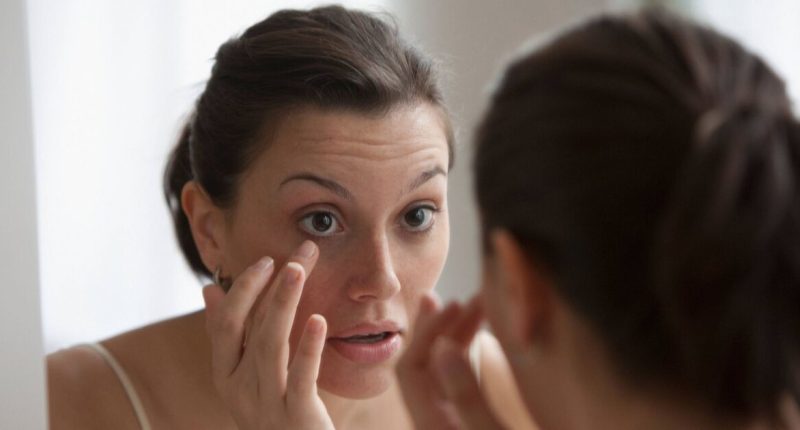Share this @internewscast.com
This Stroke Awareness Month, Dr Dave Nichols, the resident doctor for MyHealthChecked, is sounding the alarm for Britons to get their cholesterol levels checked amidst a concerning rise in patients with high cholesterol. Cholesterol, while essential for building cells and producing vitamins and hormones, can be detrimental in excess, heightening the risk of heart disease or stroke.
A considerable 54% of UK residents are grappling with high cholesterol, and Dr Nichols is witnessing an escalating trend: “As a GP, I’m seeing increasing numbers of patients with raised cholesterol – linked to the rise in obesity, a decline in physical activity and poor nutrition, including diets high in saturated and trans fats.”
Often dubbed a ‘silent condition’, high cholesterol doesn’t typically present clear symptoms. However, Dr Nichols warns: “Severe cases can cause chest pain or symptoms of a heart attack or stroke. Less commonly, yellowish deposits around the eyes (xanthelasma) or fatty bumps on the skin (xanthomas) may appear. Surprising or subtle symptoms might include leg pain while walking (from poor circulation) or erectile dysfunction.”
High cholesterol is a known risk factor for strokes, with the Stroke Association finding that it can raise the risk by 10%. During this May’s Stroke Awareness Month, Dr Nichols sheds light on the connection: “Imbalanced cholesterol levels significantly increase the risk of stroke by damaging and obstructing blood vessels that supply the brain. High levels of bad cholesterol contribute to the build-up of fatty deposits (plaques) in the arteries, and these plaques can narrow or block blood vessels, reducing blood flow to the brain.”
Thankfully, there are several straightforward strategies to keep your cholesterol in check from the comfort of your home.
NHS GP’s five ways to monitor and manage cholesterol
Incorporate a diet that’s good for the heart: Pile your plate with fibre-rich foods such as oats, pulses, fruits and veggies, alongside healthy fats found in nuts, seeds, olive oil and oily fish. Keep saturated fats, trans fats and highly processed items to a minimum.
Get moving: Engage in at least half an hour of moderate exercise (such as a brisk walk, bike ride or swim) on most days to increase HDL (the good cholesterol) and decrease LDL (the bad cholesterol).
Keep to a healthy weight: Even shedding a few pounds can enhance your cholesterol profile and slash the risk of cardiac issues.
Give up smoking and drink in moderation: Smoking can deplete beneficial cholesterol and harm blood vessels. Meanwhile, too much booze can elevate cholesterol and triglyceride levels, so stick to sensible drinking limits.
Utilise at-home cholesterol test kits: These handy devices enable you to keep an eye on your total cholesterol, HDL, LDL, and triglycerides from the comfort of your home. They’re instrumental in monitoring progress and encouraging healthy changes between visits to your GP.
MyHealthChecked offers the Heart Profile Blood Test, available for £53 at Boots, which assesses a variety of crucial health markers, including cholesterol and glucose levels, to deliver personalised insights that guide you towards better health.
Following Dr Nichols’ guidance, 50-year-old Ed aimed to integrate more exercise into his daily life to lower his cholesterol. However, after a spell of reduced physical activity, he had some reservations and decided to try at-home testing for a clearer picture of his health status.
Ed said: “The expert recommendations revealed which foods are more beneficial for me when it comes to reducing cholesterol, and which ones aren’t. Since testing, I’ve made some dietary changes: I’ve reduced my red meat consumption, am trying to eat more vegetables, and have switched from dairy to oat milk.
“I’d culturally always gravitate towards white rice, but I now opt for brown rice, and have swapped white bread for granary. I’ve also been trying whole-wheat pasta, but don’t tell any of my Italian family that! Testing has given me a clearer sense of direction regarding what I need to change, and I’m looking forward to seeing the continued benefits of these adjustments.”
As the eagerly anticipated pub garden and barbeque season looms, typically accompanied by a spike in alcohol, fried foods, and red meat consumption, Dr Nichols offers advice: “Excess saturated fat and trans fats from grilled or processed foods contribute to plaque buildup in arteries, while alcohol – especially in larger amounts – can raise triglycerides and lower HDL (good cholesterol).
“Over time, regular indulgence without balance can significantly increase cardiovascular risk. Moderation, healthier swaps (like lean meats, veggie skewers, and grilled fish), and mindful drinking can help keep cholesterol in check while still enjoying the season.”













